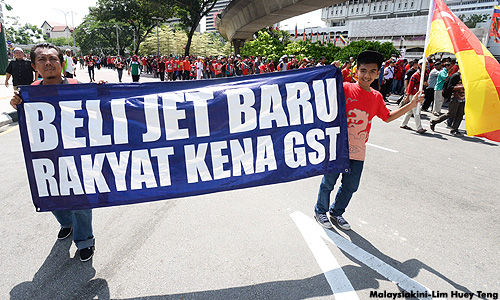
Benjamin Franklin wrote, “In this world nothing can be said to be certain, except death and taxes”. However, there are exceptions in the case of taxes. There are currently about thirteen countries with no income tax. But recently, value added tax (VAT) was introduced in Saudi Arabia and in the United Arab Emirates.
Tax (Latin: taxo) is a mandatory financial charge or levy imposed upon a taxpayer by the government in order to fund various public expenditures.
Historically, taxes were levied on the poor to support the nobility. The current model is a social-security system aimed at supporting the poor, disabled, or the retired by taxing those who are still in employment.
Taxes not only aim to raise revenue for the government but also aim to alter prices in order to affect demand through excise duties and tariffs.
Some are of the view that most taxes are immoral due to their involuntary nature. But there are certain personal allowances and other non-business deductions to taxable income. However, business deductions and incentives tend to be more favourable over personal allowances.
Are taxes really immoral? Based on the above points, let us discuss it in the context of our beloved country.
In 2014, before the implementation of the Goods and Services Tax (GST), the prime minister said the GST would not burden the rakyat. He added, “We must explain that many people are not paying taxes or are paying less than what they should be paying”.
He reminded that there were only about one million citizens that were paying taxes. The GST was likened to antibiotics needed to ‘cure’ the economic illnesses and drive the transformation programmes.
In November 2017, the deputy finance minister said the base for individual tax payers in Malaysia was small, hence the need for the GST which covered a wider base.
It will also tax those who can afford to spend. He told the Dewan Rakyat that the number of individual income tax payers in Malaysia was small with just 2.3 million people.
A tax cut in Budget 2018 will reduce the number to about two million. And the number of companies paying taxes is also very low - about 168,000 compared to 1.2 million registered with the Companies Commission of Malaysia (SSM).
Introduced in 2015, some considered GST as a great and fair tax. Apart from widening the revenue base, it will disrupt the informal (non tax-paying) economy in Malaysia and ensure that the four million non-citizens in Malaysia will now be paying taxes while enjoying the many services provided by the government.
Since one of the aims of a tax system is to support the poor, disabled or the retired by taxing those who are still in employment, is it fair to impose GST on unemployed retirees, especially non-government retirees, living on their hard-earned savings?
If the number of individual income tax payers is small, isn’t it due to some weaknesses in tax structuring or the low income level of Malaysians? Obviously, this will exacerbate economic distortions.
I am very concerned that there is a huge difference between the number of tax payers quoted by the prime minister in 2014 and the number quoted in 2017.
Let us now zero in on Kuala Lumpur's Exchange 106, “the most luxurious office skyscraper”. Overall, nationwide, there is a glut for office space and the vacancy rate is in the region of 20 percent with more coming into the market.
Various incentives and favourable tax practices are given to projects in KL's Tun Razak Exchange . Those who have formally signed up for office spacve there are predominantly from the local financial and lending sector.
If we look at Bursa Malaysia's top five companies by market capitalisation, three are financial institutions.
The point here is, people or entities who can afford luxuries and are making a lot of money are given incentives and tax deductions while the ‘Bottom 40’ and unemployed retirees are forced to pay GST.
How about property-related taxes? The special officer to the prime minister said that "property-related taxes are the main cause of increase in the cost of living" in Selangor and Penang.
He added, the higher cost of living is eroding our standards of living and our quality of life and the poor and low-income groups are suffering the most of all.
I may not accept the above argument entirely but there is some truth there.
On the international front, we have heard about Panama papers or some term it as the "Mossack Fonseca papers".
On the international front, we have heard about Panama papers or some term it as the "Mossack Fonseca papers".
There were some disclosures of tax avoidance and legal impropriety. So are “tax havens”. Those who rob Peter to pay Paul can always count on the support of Paul.
Given the above, isn’t taxation an act of compulsion? Higher taxation means more compulsion. The habit of clothing it in fine words hides the fact that taxation is the confiscation of our property by people who prefer to spend it on their priorities rather than on ours or the masses'.
So, are taxes really immoral?- Mkini



No comments:
Post a Comment
Note: Only a member of this blog may post a comment.